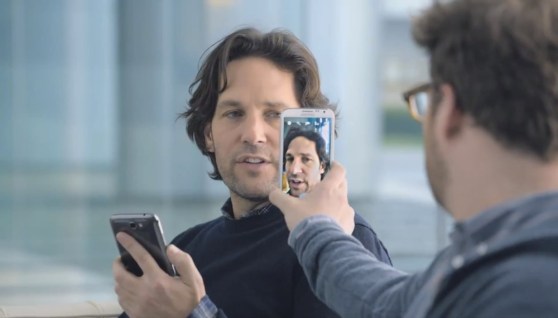
The secret to Samsung’s success so far has been pretty simple: Make good phones, then market the hell out of them.
The strategy has been an effective one for Samsung, but it’s also been wicked expensive: Samsung spent $401 million on promotional efforts in the U.S alone last year, reports the Wall Street Journal, citing data from Kantar Media. Apple, in comparison had a marketing budget of $333 million.
But while Samsung has sunk a lot of money into advertising, the quality of its marketing efforts has been decidedly mixed. Its Super Bowl/”Big Plate” ad (estimated to have cost $15 million to air) was both celebrity-filled and entertaining, but its latest Galaxy S IV teaser was, well, bafflingly bad.

Above: Ouch.
But just because the ads themselves are bad doesn’t mean Samsung isn’t getting its message across. Heck, sometimes a bad ad is exactly what a company is aiming for: Bad ads create conversation, conversation creates interest, and interest very often becomes a sale. It’s not a foolproof equation, but it’s worked pretty well for ad guys so far.
But sometimes — pretty often, in fact — Samsung pushes too far. This Galaxy S III ad, for example, shows a pretty effective way to turn away potential customers by openly insulting their intelligence. It’s tough to watch, even for someone who’s never owned an iPhone.
Apple isn’t infallible on the ad front either. Remember its godawful Genius ads from last summer? The spots were so bad and so painfully unfunny that Apple was forced to yank them off the air soon after their debut (though the company has denied this).
But did those bad ads hurt iPhone sales? Probably not. In fact, the key takeaway there is that while Apple and Samsung often create bad ads, bad ads aren’t something consumers are going to punish them for in any measurable way. The twin titans are just too darn big.
The other takeaway should be pretty obvious: How can a company like HTC even hope to come close to matching Samsung when Samsung’s ad budget is larger than HTC’s quarterly revenue? That dynamic should tell us a lot about why HTC is in the spot it’s in.

